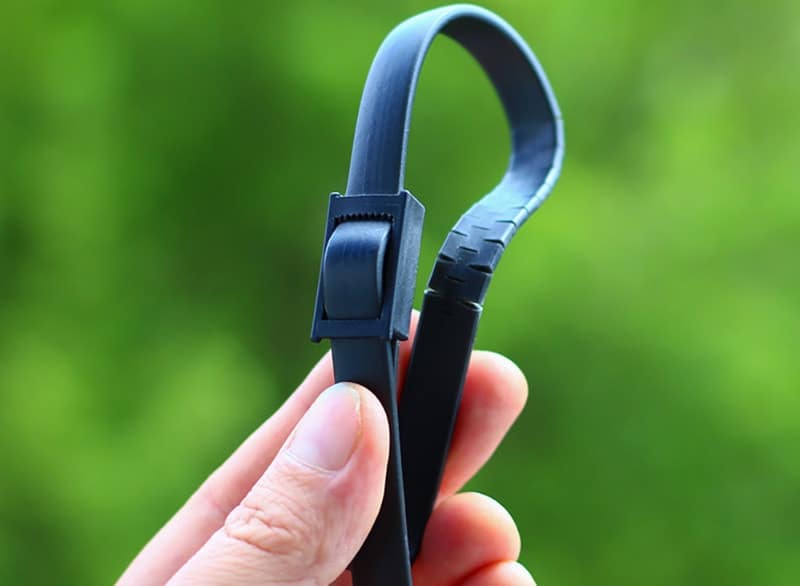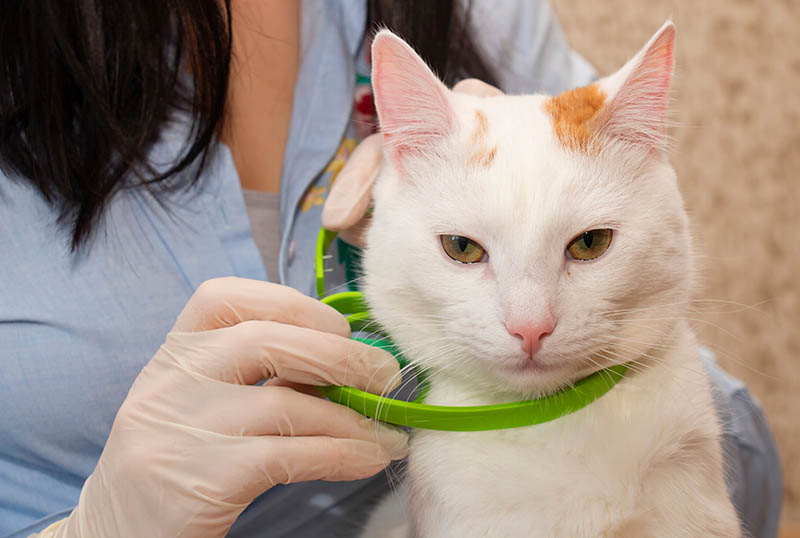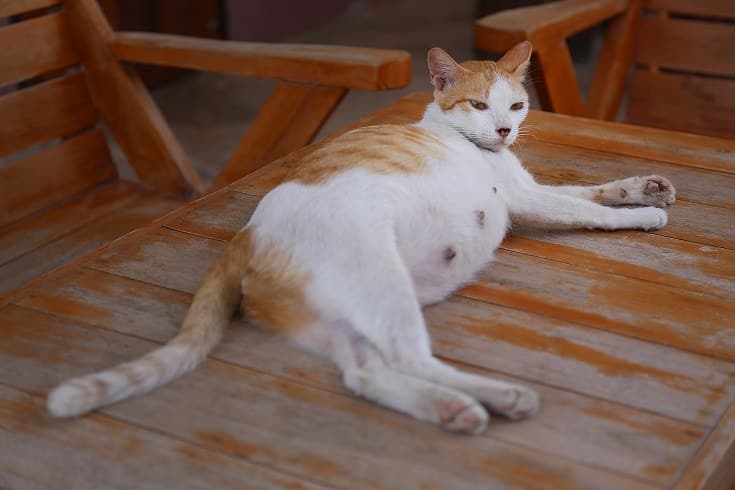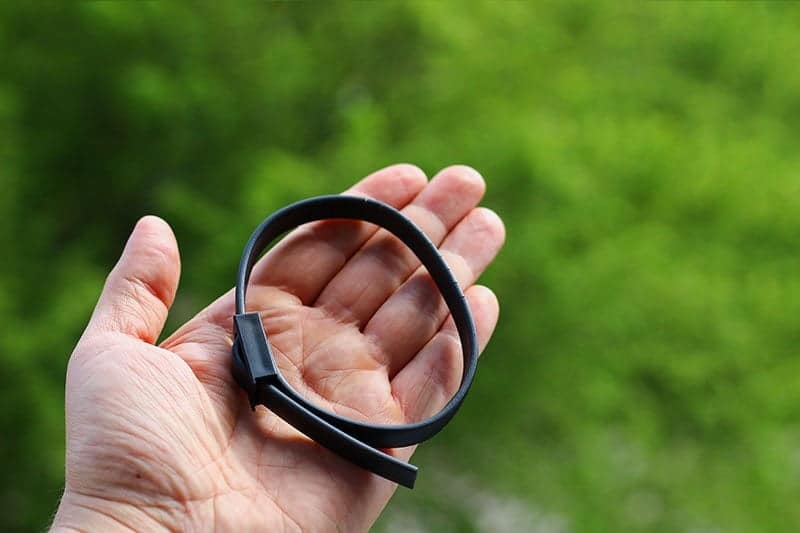Cat flea collars use a form of insecticide to scare away, deter, or kill fleas. They are often used in conjunction with spot-on treatments or independently, though owners do need to ensure that the collar that they buy fits snugly on their cat’s neck without being too tight and that it is not at risk of getting caught on branches or other protrusions.
Generally, cat flea collars are considered safe for pregnant cats, but you should check the packaging and material to ensure that this is the case. It is often advised that a pregnant cat undergo flea treatment, or they will pass the fleas on to their kittens, and fleas can prove deadly to newborn kittens. You can also consult your veterinarian, which is especially important if your cat has other underlying health conditions or allergies that might affect wearing a cat collar.
How Do Cat Flea Collars Work?
All flea collars work in the same basic way in that they contain a substance to get rid of fleas, and this substance is released slowly onto the cat’s skin and into their coat, around the neck area.
This area is where a lot of fleas congregate, and when your cat grooms and scratches, that spreads the substance around the body. Depending on the type of flea collar used, the substance may directly kill the fleas or their eggs, or it might emit a smell that repels fleas.
The collar will continue to work until the substance dries up, usually within 6 months.

Are Cat Flea Collars Safe for Pregnant Cats?
Because flea collars use some form of insecticide to get rid of fleas, it is understandable that some owners might be reluctant to put them on pregnant cats. However, most are safe for use on pregnant and lactating mothers.
The chemical used shouldn’t cause any harm to the unborn kittens or the mother and might actually be beneficial for both. Fleas can be especially dangerous for kittens, and because the mother will come into regular, close contact with the kittens, she will pass any fleas on to her young. By getting rid of a flea infestation before the kittens are born, it is possible to protect them.
However, you should check the packaging of any cat flea collar you buy. Some may recommend that they are not used on pregnant cats. Similarly, if you are in any doubt, you can also ask your vet. They will be able to recommend whether the collar is safe to use, and they will be able to provide you with alternatives if required.

Are Cat Flea Collars Safe for Kittens?
It is generally recommended that kittens under the age of 12 weeks are not given cat flea collars. For a start, your kitten is still growing very quickly at this age, which means that while the collar might be loose enough when you fit it, it will only take a couple of days before it might be too tight. The chemicals used, though safe for older cats, can also be harmful to very young kittens.
Alternatives to Flea Collars
Different types of flea treatment can be used on cats, including on pregnant cats. Whether you are considering tablets, spray, or spot treatments, though, always check the packaging and safety material to determine whether the treatment should be used on pregnant cats or kittens.
Arguably the safest method of flea control is to use a fine-metal flea comb. As you comb from the skin outward, it will pick up flea eggs that you can get rid of. However, as safe as a flea comb is, it is the least effective and highest maintenance method of flea control.

Signs Your Cat Has Fleas
Cat fleas are irritating and can cause serious health problems, especially in very young, very old cats, those with weakened immune systems, and those that have adverse reactions to flea bites.
However, despite the trouble they cause, fleas are very small, and this may mean that by the time you spot them, your cat and your home could already be infested. Here are five signs of cat fleas that you should keep an eye out for:
- Cat Scratching — When a flea bites, it leaves saliva in the bite wound, which passes into the bloodstream. The body treats this as an allergen and produces histamine to combat what it views as an allergic reaction. It is this histamine that causes flea bites to itch and can leave the bite area red and swollen. The bites will irritate your cat, and they will scratch and bite at the area to try to relieve the itching sensation.
- Cat Hair Loss — Typically, hair loss occurs as a result of your cat scratching at the already irritated area. This scratching can cause lesions and cuts in the skin, and it can result in the hair being pulled out. If you notice small bald patches on your cat, you should investigate to determine the cause.
- Lethargy — If your cat has a serious flea infestation and it is left untreated, the fleas can seriously deplete your cat’s blood level. With blood loss comes anemia; two of the primary signs of cat flea anemia are lethargy and pale gums.
- Black Spots in the Cat’s Fur or Bedding — Black spots in your cat’s bedding or even in their fur might be what is known as flea dirt, which is feces from the fleas. You can try squashing the black spots in tissue, and if they leave a red or brown smudge, they are likely to be flea dirt and a sign that your cat does have fleas.
- Bites on People — Cat fleas don’t just bite cats. They will climb off your cat onto carpets, bedding, and other surfaces and transfer to you and other people. Fleas don’t discriminate, and they will bite people in order to feed off their blood, so if you have small bites on your skin that are red, inflamed, and itchy, it could be a sign of cat fleas.
Conclusion
Cat fleas are a nuisance and in extreme circumstances, can cause bad reactions in cats. Even a small number of fleas can lead to excessive scratching and biting, which in turn, can cause bald spots and other problems.
A severe reaction might lead to anemia, and treating cats to get rid of fleas is important. It is especially vital with pregnant cats, or they will pass the fleas onto their kittens when they are born.
Cat flea collars are usually safe for pregnant cats, but you should check the packaging of any collar before using it. If in any doubt, ask your vet for their opinion on the best product and the best way to treat the flea problem.
- Related Read: Can You Use Dog Flea Collars on Cats?
Featured Image Credit: Gagarin Iurii, Shutterstock












